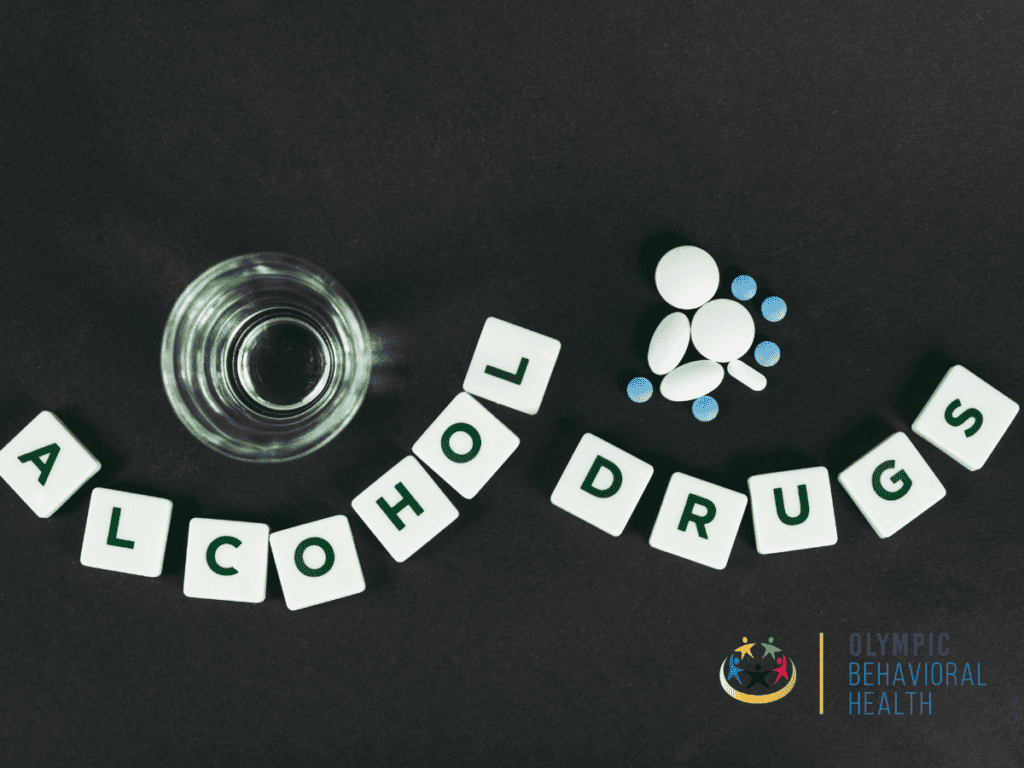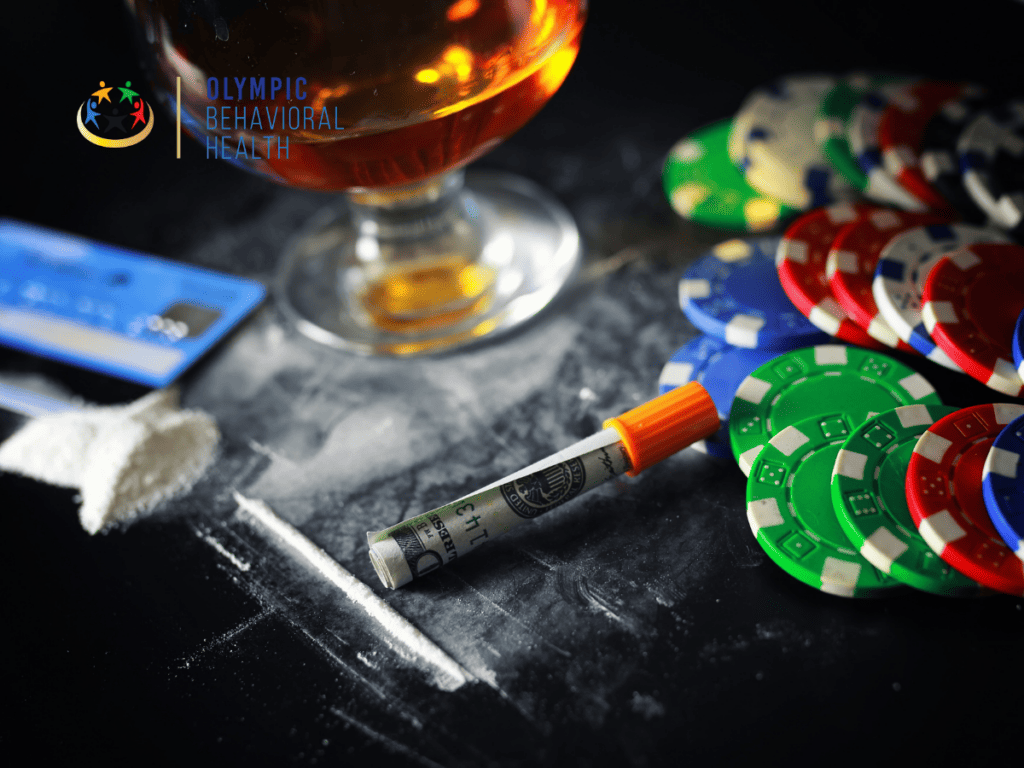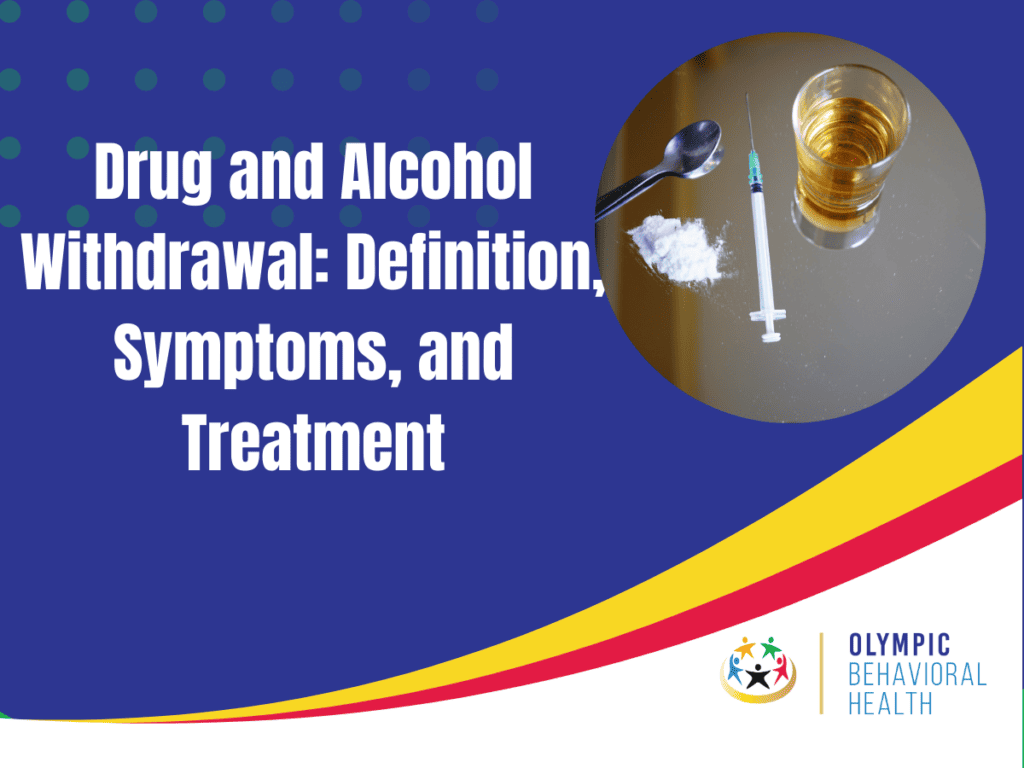Drug and alcohol withdrawal refers to the changes experienced by an individual when there’s a sudden discontinuation or reduction of the usage of a drug or alcohol, used in varying quantities, usually over a long period.
The symptoms of Drug and Alcohol Withdrawal can be mild or severe, depending on the substance used, period of usage, age of the individual, physical health, and psychological characteristics. The symptoms include: anxiety, anger, depression, tremor, loss of or increased appetite, insomnia, restlessness, nausea, and sweating, among others.
The treatment of drug and alcohol withdrawal is usually referred to as detoxification. It is aimed at helping individuals safely navigate the withdrawal period, with lesser discomfort.
What is Alcohol and Drug Withdrawal?
Drug and Alcohol Withdrawal refers to the changes – mental, behavioral, and physical – that follow a sudden stoppage of or cut back on the prolonged usage of substances, according to the National Institute on Drug Abuse, American Psychiatric Association (2013), and the Center for Substance Abuse Treatment (2015). These changes are diverse and the severity depends on the substance.
The American Psychiatric Association classified alcohol, opioids, sedatives, and benzodiazepines among the substances whose stoppage or reduction present serious symptoms.
Causes of Alcohol and Drug Withdrawal
Nature and all its components work on the principle of balance; every part must be in the right proportion. An imbalance in any area is met by counter efforts to restore balance. The human body also functions on the same principle.
This state of balance in the human body is known as homeostasis. Imbalance causes varying problems, some of which are very dangerous, hence the body constantly fights within its systems to maintain balance.
Usage of drugs or alcohol consumption has the potential to disrupt the balance in the body, especially the brain. They alter some brain activities, thereby disrupting balance (homeostasis). According to a paper released in 2017 by National Institute on Drug Abuse, consistent use of these substances, translating to consistent disruption of balance, often force the brain to make adjustments (known as neuroadaptations). These adjustments are aimed at fighting the chemical changes caused by the drug or alcohol.
Once it has adjusted to the chemical changes caused by usage of drugs or alcohol, the brain struggles to maintain balance if the substance usage is suddenly stopped or cut back. The period neurotransmitters, which are chemical messengers, are readjusted to attain homeostasis leads to withdrawal.
In other words, physiological dependence develops with continued drug or alcohol use. Once this happens, the users cannot feel or act normal without the presence of the substance. Hence, an attempt to reduce or totally stop the use of this substance will leave the dependent individuals with varying degrees of side effects, known as withdrawal.

What Are The Symptoms of Alcohol and Drug Withdrawal?
The symptoms of Drug and Alcohol Withdrawal experienced by individuals range from mild to severe, depending on the substance used, the level of dependence (quantity), and the period of usage. According to the American Psychiatric Association, the withdrawal symptoms of alcohol addiction and drug abuse can be very pronounced. Hence, people often relapse to usage in a bid to reduce the symptoms experienced.
Different substances present different symptoms because the chemical alterations they trigger in the body differ. Sedatives, opioids, alcohol, and benzodiazepines are among the most common substances. Stimulants and marijuana are also very common but usually with less pronounced symptoms. Withdrawal symptoms will be discussed below based on substance:
Alcohol Withdrawal Symptoms
Alcohol Withdrawal symptoms include:
• Anxiety
• Nausea (vomiting)
• Irritability
• Sweating
• Insomnia
• Restlessness
• Hand tremors
• Increased blood pressure
• Rapid heart rate
The above symptoms are mild but there is also acute withdrawal, with dangerous symptoms that increase the chance of fatality. These severe signs include:
• Agitation
• Seizures
• Hallucinations
• Confusion
• Sweating
• Difficulty regulating blood pressure and body temperature
Benzodiazepine Withdrawal Symptoms
These depressants are typically prescribed for the management of panic disorder, anxiety, and some seizure disorders. For a consistent use of relatively short-acting benzodiazepine over a long period, withdrawal symptoms can be seen in a matter of hours or days, while those of longer-acting benzodiazepines take a few days to one week before symptoms appear.
Symptoms of longer-acting benzodiazepines peak around 2 weeks and eventually are resolved by week 3 to 4 because of its protracted withdrawal effect. However, it is not unusual for some people to still feel less intense symptoms several months after stopping or cutting back on usage. Shorter-acting benzodiazepines are resolved within a week (4 to 5 days), peaking in intensity around day 2 to 3.
The withdrawal symptoms of benzodiazepines include:
• Anxiety
• Sweating
• Insomnia
• Irritability
• Restlessness
• Agitation
• Concentration difficulty
• Difficulty remembering things
• Tense or achy muscles
• Fast pulse
• Difficulty regulating body temperature
• Hallucinations
• Increased sensitivity to sound, smells, and light
• Tremor
• Seizures
Note: some people mix benzodiazepines with alcohol or opioids, a combination known to cause severe levels of respiratory depression and sedation, hence enhancing the side effects and potential fatality.
Opioids Withdrawal Symptoms
Illicit drugs such as morphine, oxycodone, hydrocodone, and heroin belong here (WHO). The withdrawal symptoms of opioids are generally less severe, but a few dangerous complications could also arise. For example, the chance of lung infection is significantly enhanced if vomit is aspirated and the risk of electrolyte imbalance is increased by prolonged diarrhea and vomiting. Opioids Withdrawal Symptoms include:
• Anxiety
• Dilated pupils
• Chills or goosebumps
• Excessive yawning
• Insomnia
• Watery eyes
• Runny nose
• Diarrhea
• Muscle and joint pain
• Sweating and fever
• Increased pain sensitivity
• Nausea or vomiting
Marijuana Withdrawal Symptoms
Sudden stoppage of the usage of marijuana, including medical marijuana, also presents drug withdrawal symptoms. According to WHO, the symptoms include:
• Anxiety
• Restlessness
• Nervousness
• Aggression
• Anger
• Insomnia
• Loss of appetite
• Depression
• Sweating
• Abdominal pain
• Headache
• Tremors
• Upsetting dreams
Stimulant Withdrawal Symptoms
The abuse of stimulants typically occurs as binges, patterns of heavy use. This is not limited to illicit stimulants like crack and crystal methamphetamine, but also some prescription stimulant medications like Adderall and Ritalin.
Usually, stimulant withdrawal symptoms are not severe but serious depression, manifesting suicidal thoughts and actions, is a real possibility. In the case of the latter, close attention is important. Stimulant withdrawal symptoms include:
• Fatigue
• Increased appetite
• Irritability
• Insomnia or excessive sleeping
• Restlessness
• Muscle pain
• Faster or slower movement
• Agitation
• Depression
• Strong craving for substance
• Nightmares

How is Drug and Alcohol Withdrawal Treated?
The treatment of drug and alcohol withdrawal is diverse and is best handled by experts because of the potential complications. Treatment professionals consider the risks and possible complications before choosing the safest and most effective treatment management for an individual. The treatment process is usually referred to as detoxification.
What is a Detox Program?
A detoxification program is designed for a safe and comfortable withdrawal process for individuals. It has little effect on the underlying behavioral, psychological, and social factors causing addictions or abuse. However, it is a very important process that comes first in the alcohol recovery process and it is very effective when combined with other forms of treatment.
What Are The Types of Drug and Alcohol Addiction Treatment Programs?
For long term recovery from addictions and abuse, treatment must continue after a Detox. These treatment plans are designed according to the needs of individuals and things to learn include relapse prevention techniques, communication skills, and coping skills, among others. If medication is required, it is included at this stage. Treatment settings include:
Residential treatment: this involves the individual living at the treatment facility. Therefore, support from medical and addiction treatment professionals is available round the clock. It is great for individuals with persistent withdrawal symptoms.
Outpatient treatment: Individuals live in their home and their work continues in the course of treatment. Below 9 weekly hours is usually needed.
Intensive outpatient: just like outpatient treatment, Intensive outpatients live at home and work but the treatment involves complex needs like dual diagnosis. At least 9 weekly hours are usually required.
Partial hospitalization: individual lives at home and work while multidimensional instabilities are being treated. At least 20 weekly hours are usually required.
Note: re-evaluation and adjustments could be done during the drug and alcohol recovery process to meet the changing needs of individuals.
What is Post-Acute Withdrawal Syndrome?
Regardless of the severity of drug and alcohol withdrawal symptoms, they are typically resolved in weeks. However, some could last months or even up to a year, especially in cases of heavy consumption over a prolonged period.
Post-Acute Withdrawal Syndrome (PAWS) refers to symptoms remaining following the resolution of acute withdrawal symptoms. These symptoms are hardly physical but can be as intense as those felt in the early stages, e.g. Insomnia, mood swings, depression, low or lack of libido, irritability, anxiety, etc. PAWS increases the risk of a relapse because the longer the discomfort the higher the chance of returning to the use of a substance.
How long do alcohol withdrawal symptoms last?
According to the World Health Organisation, alcohol withdrawal symptoms will kick in between 6 and 24 hours of stopping or cutting back on heavy and prolonged usage. Over the next 2 to 3 days, the symptoms will worsen and gradually begin to improve from day 4 to 10. By day 10, the symptoms are expected to have been resolved.
Can I die from Drug and Alcohol Withdrawal?
Either this question is being asked in preparation of stopping or cutting back on substance usage or when the withdrawal symptoms start to hit, the straightforward answer is yes. As discussed above, withdrawal symptoms range from mild to potentially dangerous and severe.
Symptoms of drug and alcohol withdrawal with a significantly increased chance of fatality are disrupted blood pressure and body temperature regulations and seizures.
Medical detox has proven to be a safe way of handling the symptoms of drug and alcohol withdrawal, especially when supervised by treatment professionals, according to the World Health Organisation (WHO, 2009) and the American Psychiatric Association (2013). Therefore, it is best to work and cooperate, as much as possible, with treatment professionals on this journey.
Where can I go for Drug and Alcohol Withdrawal?
When withdrawing, it is imperative to have a safe and supportive environment because of the peculiarities of the journey. Talk to professionals for advice on the best setting for your recovery.
Is a Detox Program enough?
Detox programs are designed for easier recovery but are not aimed at addressing the underlying issues. Hence, they are used in addition to other treatment options for effectiveness.
Why can you get addicted to drugs or alcohol?
Addiction to drugs or alcohol can occur due to a combination of factors such as genetics, environment, and individual biological and psychological makeup. These substances affect the brain’s reward system by releasing chemicals that produce feelings of pleasure and happiness. Repeated use can lead to physical and psychological dependence, where a person needs more of the substance to achieve the same effects or to avoid withdrawal symptoms.
Over time, the brain’s natural reward system becomes altered, leading to compulsive drug or alcohol seeking behavior. It is important to seek professional help for addiction as it is a chronic disease that requires a comprehensive treatment approach. For more information on why people get addicted to drugs and alcohol, read our article.
What are commen challenges when doing a drug or alcohol detox?
One common challenge when undergoing drug or alcohol detox is experiencing severe withdrawal symptoms. These symptoms can range from physical discomforts such as nausea, headaches, and body aches, to psychological symptoms like irritability, anxiety, and depression. Another challenge is the risk of relapse, as detox can be a difficult and emotionally draining process.
Additionally, individuals may struggle with the psychological effects of coming off of a substance they have been dependent on, such as feeling lost or lacking purpose. It is important for those undergoing detox to have a strong support system and access to professional treatment to help them successfully navigate these challenges. For more information on support systems during detox, read our article on.
Get help for your Addiction
Addiction Treatment at Olympic Behavioral Health offers help and support for those struggling with addiction. Taking the first step can be difficult, but it is crucial to call for assistance. Our facility in West Palm Beach provides comprehensive addiction treatment programs to guide individuals towards recovery. If you or your loved one is battling addiction, reach out to Olympic Behavioral Health today.

Share This Post



